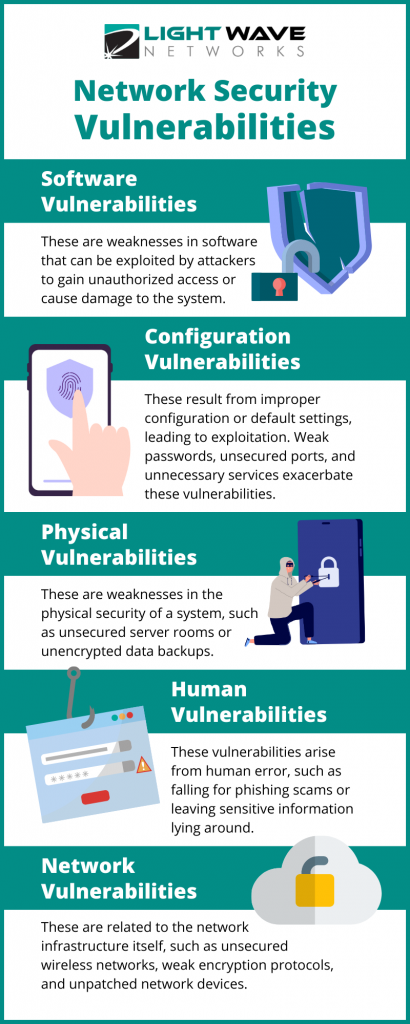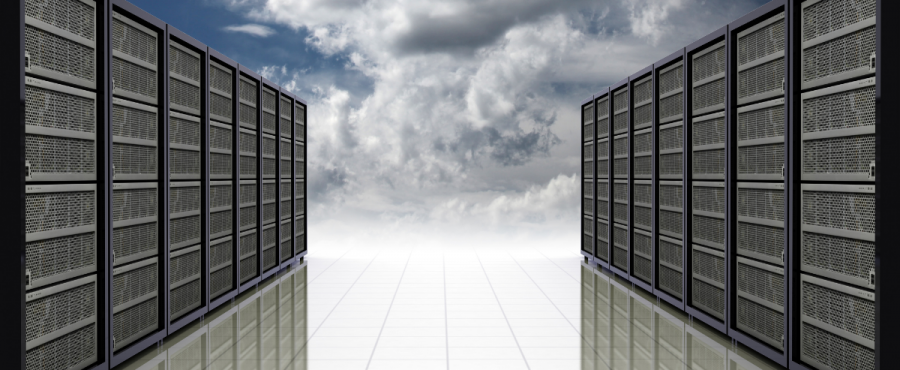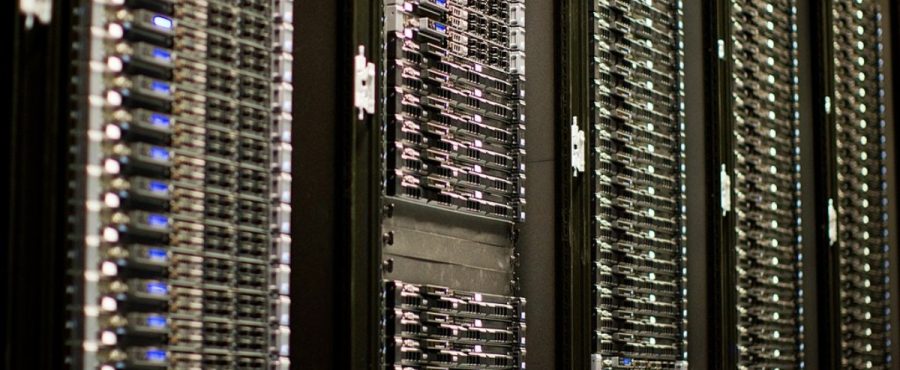Category Archives: VPS
About Network Vulnerability
Network vulnerability is a weakness or flaw in a computer network system that can be exploited by an attacker to gain access to sensitive data or information. There are many vulnerabilities that a business should be aware of. These exist in the hardware, software, and configurations of the internet systems. Having a vulnerable network could lead to many complications for businesses that want to protect their information from cybercriminals. The consequences of data infiltration on a business could be drastic, which is why our backup and disaster recovery business is here to detail more about the subject in the following article. Continue reading below to learn more.
Types of Vulnerabilities in Network Security
Since businesses and their networks are quite complex, there are many different kinds of vulnerabilities that they should understand. As an experienced hyper-converged data center, LightWave Networks is here to help you understand what the different kinds of vulnerabilities are. Some of the most common include the following:
- Software vulnerabilities: These are weaknesses in software that can be exploited by attackers to gain unauthorized access or cause damage to the system.
- Configuration vulnerabilities: These occur when a system is not properly configured or is using default settings, leaving it open to exploitation. This is most commonly reflected in weak passwords, unsecured ports, and unnecessary services running on the system.
- Physical vulnerabilities: These are weaknesses in the physical security of a system, such as unsecured server rooms or unencrypted data backups.
- Human vulnerabilities: These vulnerabilities arise from human error, such as falling for phishing scams or leaving sensitive information lying around.
- Network vulnerabilities: These vulnerabilities are related to the network infrastructure itself, such as unsecured wireless networks, weak encryption protocols, and unpatched network devices.
More About Network Security Threats and Vulnerability
Perhaps the most important kind of network vulnerability concerns that our New Jersey cloud hosting business notices that businesses have to face has to do with their network infrastructure. This is because most of a business’s data and information is stored on these networks, including their customers’ information in some cases. Network security helps protect this information from unauthorized access, theft, and misuse. Also, a data breach or cyber attack can erode customer trust and damage a company’s reputation. Network security helps maintain customer trust by protecting sensitive information and preventing data breaches.
More About LightWave Networks
LightWave Networks is a colocation data center located in many locations across the United States that are dedicated to helping our customers with everything that has to do with data management and security. This includes Dallas VPS servers, Dallas cloud hosting, and New Jersey dedicated servers, among many others. Contact us today to learn more about colocation hosting pricing or about more vulnerabilities in network security.
Related Readings
What Are the Benefits of Cloud Computing vs. Colocation?
Many businesses understand that they should be adapting to the changing business landscape, where a remote dedicated small business server backs their online applications and data. Often, business leaders find themselves struggling to understand the differences between the different kinds of technology available to them. Among the most common forms of technology used for data storage by businesses are colocation and cloud computing. If you would like to understand the differences between colocation and using cloud storage for business, continue reading below for expert insight from LightWave Networks.
Read MoreCloud Computing for Small Businesses
Small businesses are becoming more aware of the benefits that cloud computing provides to them because of how important it is to remotely store the information that they have on their computers. Before cloud storage, small businesses needed to store their information on their local database or hard drive, which meant that they were subject to damage if anything were to happen to their databases, like a flood or electrical damage. Further, without cloud computing for small businesses, it would be impossible for them to make real-time changes to documents without being physically present in the office or point of operation. Below, Lightwave Networks takes a closer look at cloud computing and the value it gives customers.
Read MoreVPS vs. Dedicated Servers Vs. Cloud Servers
As a business, you have plenty of choices when it comes to choosing the hosting model to support your company’s website, data, and IT network. Some of the most popular server hosting types are virtual private servers (VPS), dedicated servers, and cloud servers. At our Boston and Dallas colocation company, LightWave Networks, we offer all three server hosting options. At our two data centers, we host VPS, cloud servers, and dedicated servers in Boston and Dallas. When it comes to comparing VPS vs. dedicated vs. clouds servers – here’s a breakdown of the pros and cons of each option.





